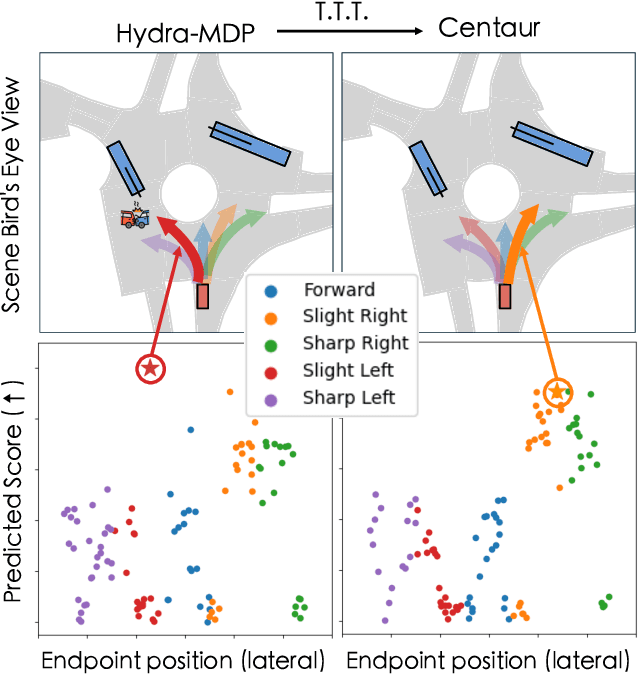Centaur: Robust End-to-End Autonomous Driving with Test-Time Training
Paper and Code
Mar 14, 2025



How can we rely on an end-to-end autonomous vehicle's complex decision-making system during deployment? One common solution is to have a ``fallback layer'' that checks the planned trajectory for rule violations and replaces it with a pre-defined safe action if necessary. Another approach involves adjusting the planner's decisions to minimize a pre-defined ``cost function'' using additional system predictions such as road layouts and detected obstacles. However, these pre-programmed rules or cost functions cannot learn and improve with new training data, often resulting in overly conservative behaviors. In this work, we propose Centaur (Cluster Entropy for Test-time trAining using Uncertainty) which updates a planner's behavior via test-time training, without relying on hand-engineered rules or cost functions. Instead, we measure and minimize the uncertainty in the planner's decisions. For this, we develop a novel uncertainty measure, called Cluster Entropy, which is simple, interpretable, and compatible with state-of-the-art planning algorithms. Using data collected at prior test-time time-steps, we perform an update to the model's parameters using a gradient that minimizes the Cluster Entropy. With only this sole gradient update prior to inference, Centaur exhibits significant improvements, ranking first on the navtest leaderboard with notable gains in safety-critical metrics such as time to collision. To provide detailed insights on a per-scenario basis, we also introduce navsafe, a challenging new benchmark, which highlights previously undiscovered failure modes of driving models.
 Add to Chrome
Add to Chrome Add to Firefox
Add to Firefox Add to Edge
Add to Edge